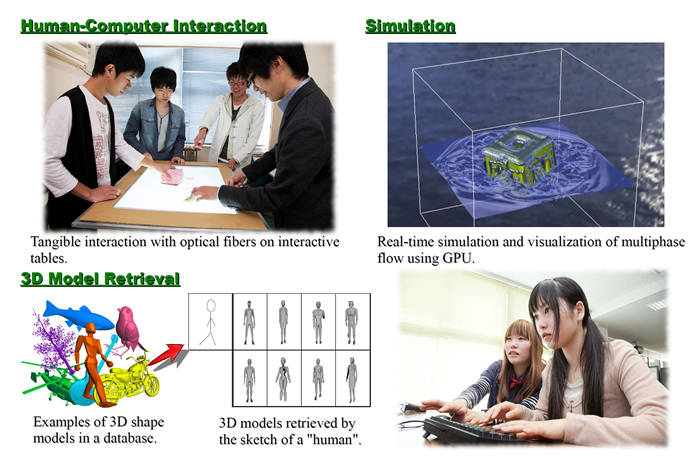Department of Computer Science and Engineering
Information technology permeates our society to the extent that the society would stop working completely if all of the computers and communications systems stopped working. It is not just the "visible" computers—smart phones, PCs, and large "server" computers—but computers, from tiny to huge, that form an unseen infrastructure to run society. They keep tap water flowing, trains and cars running, and rice cooking. Additionally, they can help you detect a disease, paint a picture; in fact, in the near future, computers will be able to drive cars autonomously.
These information systems, regardless of appearance, are conglomerations of hardware, including computers, networks, data storage technology, and others. What makes computers special and powerful is software and algorithms that define (and re-define, if necessary) what computers do. Abstract algorithms and their realizations as software programs are at the heart of a computer, creating possibilities such as an incessant flow of information on the Internet, generation of computer-graphics images for a big screen, safe driving features for an autonomous vehicle, an analysis of tsunami damages, or a prediction of what would sell at a convenient store two days into the future.
Our department provides you, initially, with a solid yet broad foundation; you will learn formal scientific methods (e.g., mathematics) and receive instruction in the humanities, thereby developing foreign language skills. You would then follow a well-established computer science and engineering curriculum jointly developed by the Association for Computing Machinery (ACM) and the IEEE Computer Society (IEEE CS) to become equipped with necessary knowledge and skills in information science and technology. You can study programming, object-based modeling, computer architecture, database systems, machine learning, computer graphics, perception, or human-machine interface design. You will also enjoy practical courses, including a group-oriented, project-based course in software development that takes you through steps to create software, from specification, design, and coding to testing and documentation.
When you graduate, you will be prepared to be a computer scientist and/or engineer capable of playing an active role in shaping the future of information systems that serve and drive society.

After graduation
| Number of graduates | 52 |
|---|---|
| Number of employed upon graduation | 28 |
| Number of students advancing to master programs | 22 |